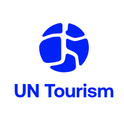New UNWTO Global Report on Inclusive Tourism Destinations launched on the occasion of UN Day 2018

A new report by the World Tourism Organization (UNWTO), produced in collaboration with UNWTO Affiliate Member globaldit, presents a model for inclusive tourism destinations. 'Global Report on Inclusive Tourism: Model and success stories" is launched on the occasion of the UN Day 2018 celebration in Madrid, Spain.
Modelling inclusive tourism destinations on the capacity of tourism to integrate disadvantaged groups and benefit from its activity, is at the centre of this report. Showcasing how tourism can function as a vehicle for sustainable development, and the reduction of poverty and inequality, in the context of the 2030 Agenda and the 17 Sustainable Development Goals (SDGs).
The Model for inclusive tourism destinations presented in this Global Report contributes directly to SDG 8 - Decent work and economic growth and SDG 10 - Reduction of inequalities; but also SDG 5 - Gender equality and SDG 17 - Global partnership for sustainable development.
"As globalization, interconnectivity and a growing middle class leads to ever more people travelling, the world will continue seeming to get smaller and inclusion will become even more of a priority," said UNWTO Secretary-General Zurab Pololikashvili. He added that this publication "will serve as an important tool for the tourism community to create and promote inclusion in destinations, and a valuable reference for all tourism stakeholders in developing best practices for a more inclusive sector".
In addition, this report highlights the need to foster discussion on and examine new approaches to inclusive tourism in order to drive tourism's long-term sustainability.
Various experts from organizations in the field of tourism and the SDGs contributed to this report: the Ashoka Foundation, the Global Sustainable Tourism Council, Google, IE University, PREDIF, the SDG Fund, Airbnb, Vinces, Walhalla DCS and Ekin Consulting. It also features success stories from a variety of stakeholders, such as the Gauteng Tourism Authority, Mekong Tourism Coordinating Office, CENFOTUR, Korea Tourism Organization, VisitScotland, Chemonics and the State of Michoacán, Mexico.
Useful links:
Global Report on Inclusive Tourism Destinations
About UN Tourism
The World Tourism Organization (UN Tourism) is the United Nations agency responsible for the promotion of responsible, sustainable and universally accessible tourism.
As the leading international organization in the field of tourism, UN Tourism promotes tourism as a driver of economic growth, inclusive development and environmental sustainability and offers leadership and support to the sector in advancing knowledge and tourism policies worldwide.
Our Priorities
Mainstreaming tourism in the global agenda: Advocating the value of tourism as a driver of socio-economic growth and development, its inclusion as a priority in national and international policies and the need to create a level playing field for the sector to develop and prosper.
Promoting sustainable tourism development: Supporting sustainable tourism policies and practices: policies which make optimal use of environmental resources, respect the socio-cultural authenticity of host communities and provide socio-economic benefits for all.
Fostering knowledge, education and capacity building: Supporting countries to assess and address their needs in education and training, as well as providing networks for knowledge creation and exchange.
Improving tourism competitiveness: Improving UN Tourism Members' competitiveness through knowledge creation and exchange, human resources development and the promotion of excellence in areas such as policy planning, statistics and market trends, sustainable tourism development, marketing and promotion, product development and risk and crisis management.
Advancing tourism's contribution to poverty reduction and development: Maximizing the contribution of tourism to poverty reduction and achieving the SDGs by making tourism work as a tool for development and promoting the inclusion of tourism in the development agenda.
Building partnerships: Engaging with the private sector, regional and local tourism organizations, academia and research institutions, civil society and the UN system to build a more sustainable, responsible and competitive tourism sector.
Our Structure
Members: An intergovernmental organization, UN Tourism has 160 Member States, 6 Associate Members, 2 Observers and over 500 Affiliate Members.
Organs: The General Assembly is the supreme organ of the Organization. The Executive Council take all measures, in consultation with the Secretary-General, for the implementation of the decisions and recommendations of the General Assembly and reports to the Assembly.
Secretariat: UN Tourism headquarters are based in Madrid, Spain. The Secretariat is led by the Secretary-General and organized into departments covering issues such as sustainability, education, tourism trends and marketing, sustainable development, statistics and the Tourism Satellite Account (TSA), destination management, ethics and risk and crisis management. The Technical Cooperation and Silk Road Department carries out development projects in over 100 countries worldwide, while the Regional Departments for Africa, the Americas, Asia and the Pacific, Europe and the Middle East serve as the link between UN Tourism and its 160 Member States. The Affiliate Members Department represents UN Tourism's 500 plus Affiliate members.
